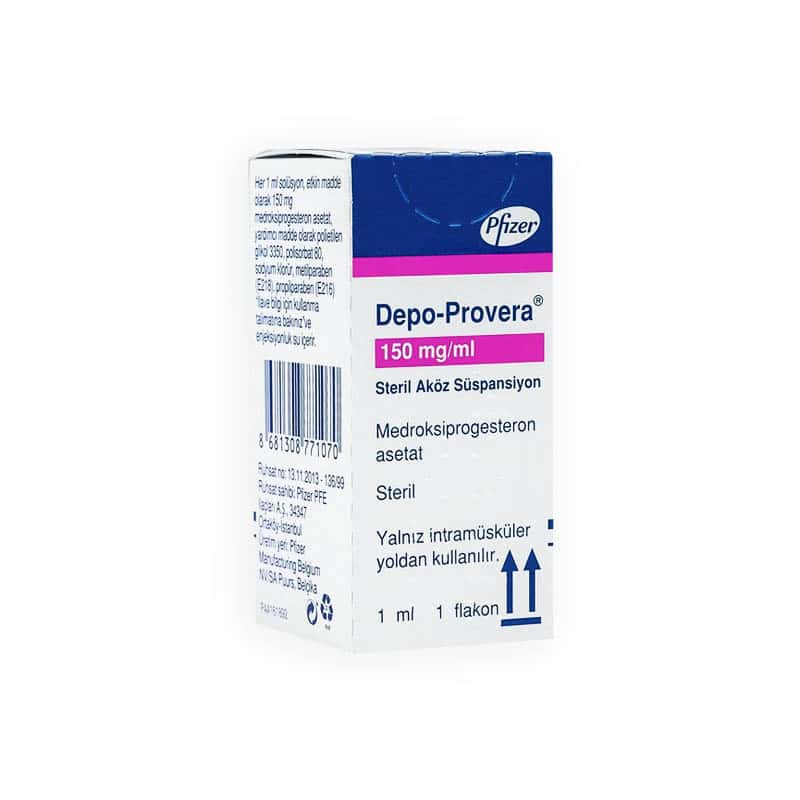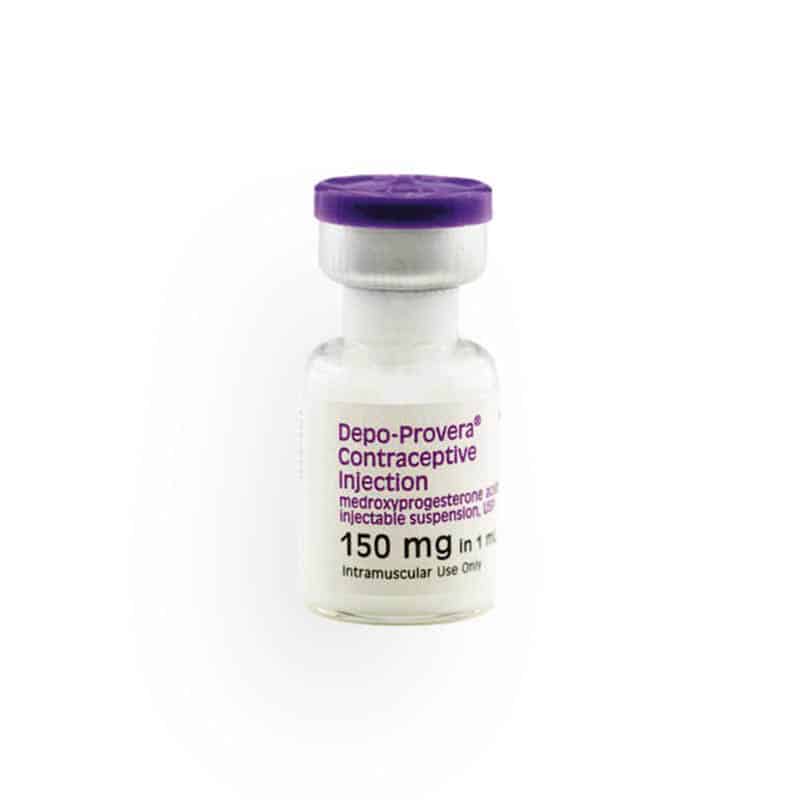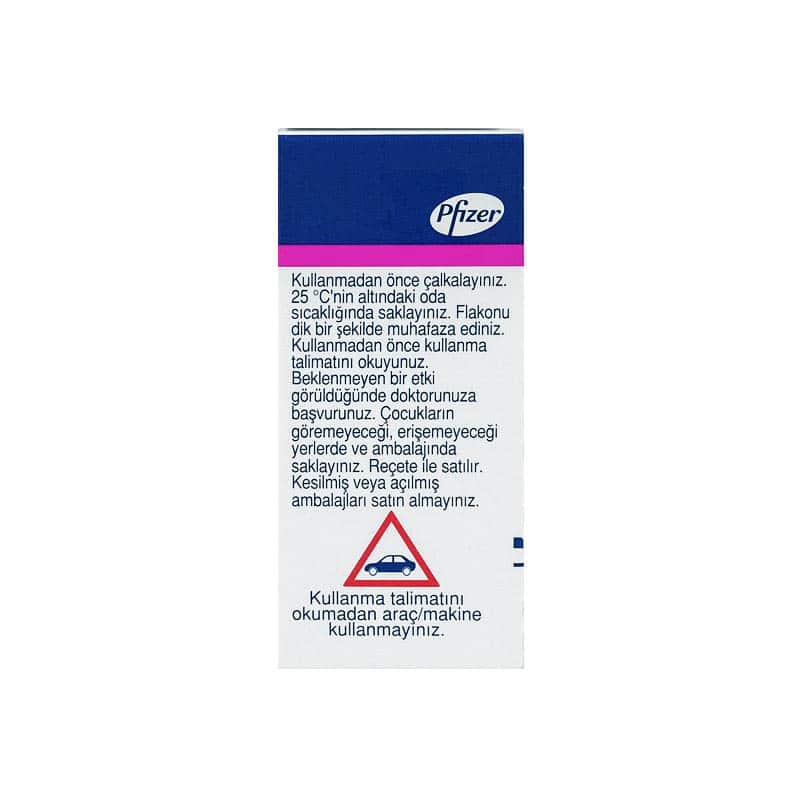Buy DEPO-PROVERA® (Non-English) Online
brand:
DEPO-PROVERA®
manufacturer:
Pfizer
active substances:
MEDROXYPROGESTERONE ACETATE
strength:
150mg/ml
pack size:
1 x 1ml Pre-Filled Syringe
DEPO-PROVERA® Indications for Use
DEPO-PROVERA® (medroxyprogesterone acetate) is a prescription injectable contraceptive and treatment for specific medical conditions. It works similarly to the natural hormone progesterone, produced by the ovaries in the second half of the menstrual cycle. It is prescribed for several reasons:
- Contraception: DEPO-PROVERA is a long-acting contraceptive that prevents pregnancy for three months with each injection. It works by inhibiting the hormones necessary for ovulation, preventing the release of eggs from the ovaries.
- Endometriosis: DEPO-PROVERA helps manage endometriosis, a condition where the uterine lining grows outside the uterus, causing pain. It stops the growth of these cells.
- Cancer treatment: It is also prescribed to treat certain cancers, including breast, kidney, and endometrial cancer, by inhibiting the growth of cancer cells.
DEPO-PROVERA® Dosage Information
The dosing for DEPO-PROVERA depends on the condition being treated, and it is always administered by intramuscular injection.
- For contraception:
- Dose: 150 mg every 3 months.
- The first injection should be administered during the first 5 days of the menstrual cycle for optimal effectiveness.
- For postpartum women:
- If not breastfeeding, the first injection should be given within 5 days after birth.
- If breastfeeding, the first injection is given 6 weeks postpartum.
- For endometriosis:
- Usual doses are either 50 mg weekly or 100 mg every two weeks, depending on the patient’s needs.
- For cancer:
- The dose is much higher for cancer treatment, starting with 500 mg daily for 4 weeks, followed by weekly injections of either 500 mg or 1000 mg for maintenance.
For each treatment, the timing of injections is critical to maintaining therapeutic efficacy. If the interval between injections exceeds 14 weeks, a pregnancy test should be conducted before continuing contraception.
DEPO-PROVERA® Side Effects and Precautions
While DEPO-PROVERA is effective for contraception and other uses, it can cause several side effects. Many of these are mild, but there are some severe risks to consider.
- Common side effects:
- Changes in menstrual cycle: Most women experience changes, such as irregular or unpredictable bleeding, spotting, or the complete cessation of periods.
- Weight gain: Some users report an increase in weight after prolonged use.
- Headaches, nervousness, and fatigue are frequently reported.
- Acne and increased facial hair may also occur.
- Serious side effects:
- Bone loss: Long-term use can result in a loss of bone density, potentially increasing the risk of osteoporosis. This effect is more pronounced in young women and women under 18 years old.
- Thromboembolism: There is a risk of developing blood clots, especially in individuals with a history of blood clotting disorders, stroke, or vascular issues.
- Cancer risks: Women who start DEPO-PROVERA under 35 years of age may have a slightly increased risk of breast cancer similar to oral contraceptive use. Long-term users should have regular check-ups for early detection.
- Severe allergic reactions: Signs of hypersensitivity include swelling of the face, rash, or difficulty breathing, which require immediate medical attention.
Precautions:
- DEPO-PROVERA should not be used in individuals with:
- Breast cancer, unexplained vaginal bleeding, or a history of liver disease.
- Active thromboembolic disorders or high risk of blood clots.
- Pregnancy: DEPO-PROVERA should not be administered during pregnancy due to its risk of fetal harm.
- The injection does not protect against sexually transmitted infections (STIs). Patients should still practice safe sex methods, such as condom use, to reduce the risk of contracting STIs.
DEPO-PROVERA®Clinical Studies and Real-World Outcomes
DEPO-PROVERA has been studied extensively in both contraceptive trials and its use for endometriosis and cancer treatments.
- Efficacy as a contraceptive:
- When used as directed, DEPO-PROVERA is more than 99% effective in preventing pregnancy. The onset of contraceptive protection begins immediately after the first injection.
- Most women experience no periods or a significant reduction in menstrual flow over time, which can be a desirable outcome for those with heavy periods.
- Endometriosis treatment:
- Clinical outcomes show that DEPO-PROVERA can significantly reduce pain and discomfort associated with endometriosis, particularly in cases where hormonal treatments alone were ineffective.
- Cancer treatment:
- DEPO-PROVERA’s role in treating breast, kidney, and endometrial cancers is associated with inhibiting tumor growth. It is often used as part of a combination therapy in patients with specific cancer types.
DEPO-PROVERA® Drug Interactions
DEPO-PROVERA can interact with several medications, potentially reducing its effectiveness or leading to side effects.
- Aminoglutethimide, a drug used for breast cancer, can decrease the effectiveness of DEPO-PROVERA, requiring dosage adjustments.
- Patients should inform their doctor if they are taking any medications, including over-the-counter drugs, vitamins, or herbal supplements, as these may interact with DEPO-PROVERA.
Special Considerations
- Bone health: Women who use DEPO-PROVERA for more than 2 years are at risk of bone density loss. Calcium supplements or dietary adjustments may be recommended to mitigate this risk. Bone density usually begins to recover after discontinuation, though full recovery may take several years.
- Pregnancy and breastfeeding: DEPO-PROVERA is not recommended during pregnancy, but it can be used during breastfeeding, with the first injection typically given at 6 weeks postpartum.
- Fertility: After discontinuing DEPO-PROVERA, it may take up to 18 months for menstrual cycles to normalize and for fertility to return. Women who wish to conceive after stopping DEPO-PROVERA should consider this delayed return to fertility when planning pregnancy.


